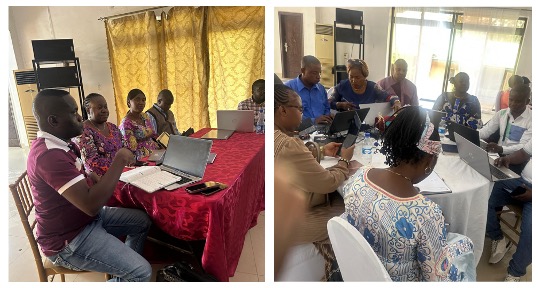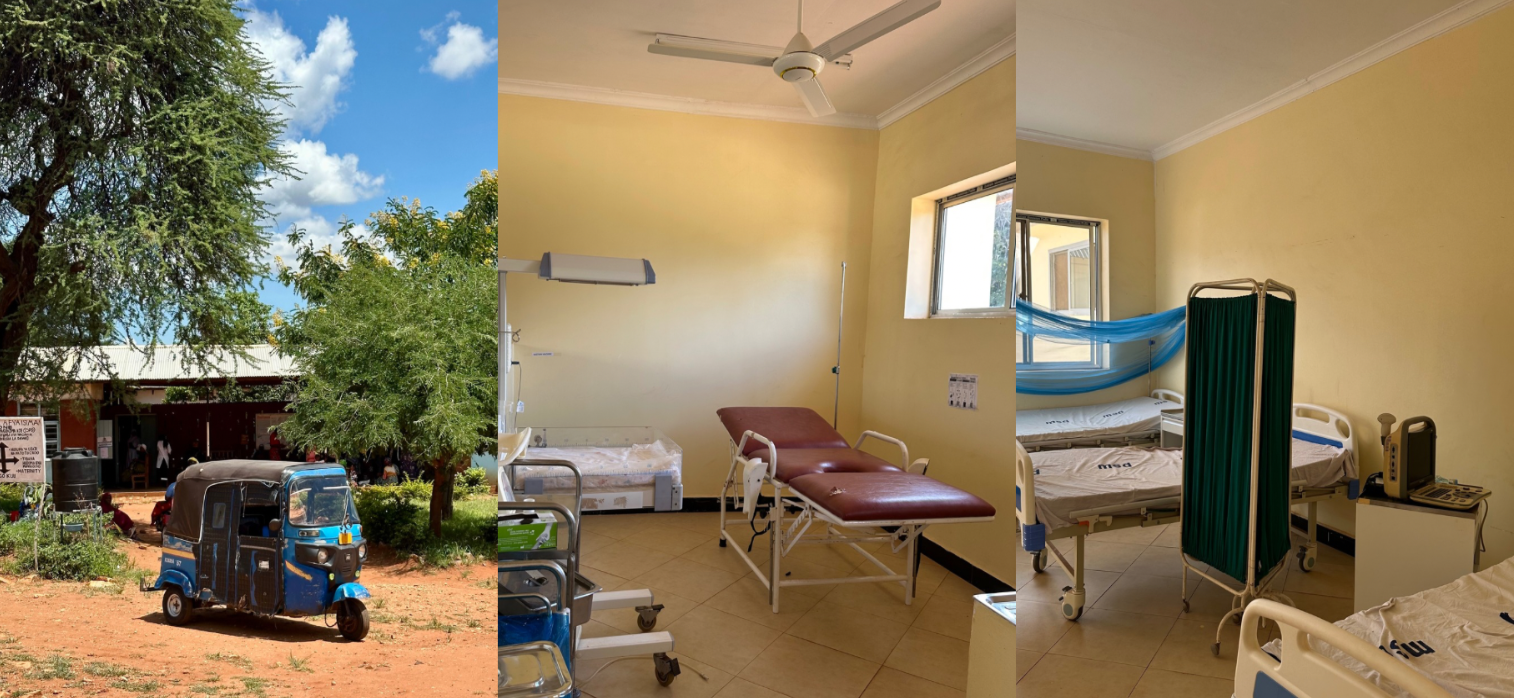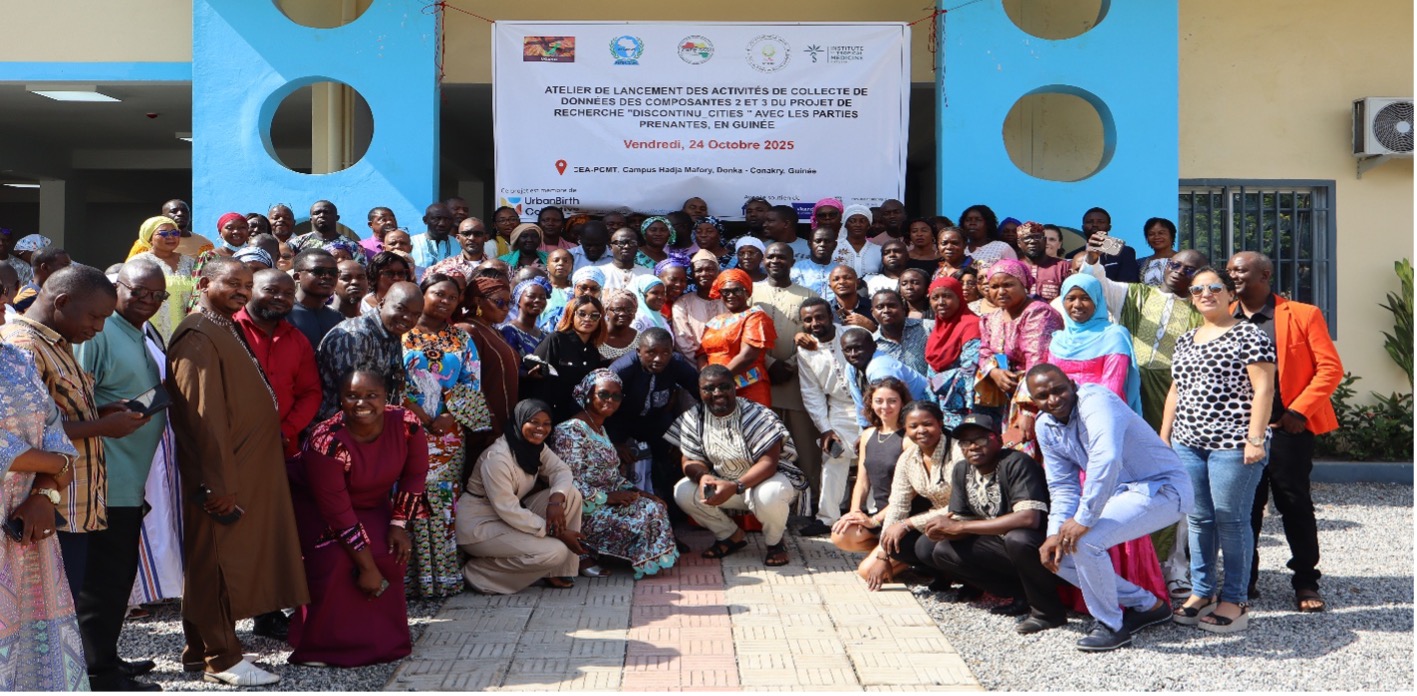
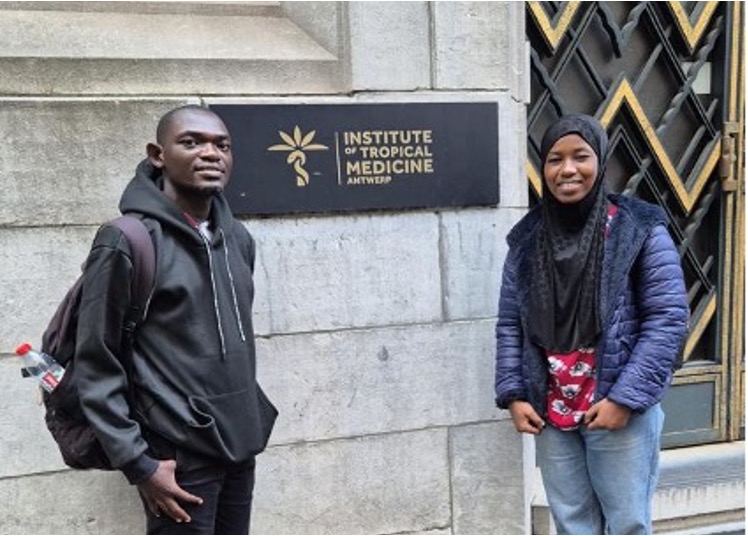
From August 31 to September 13, 2025, we had the opportunity to participate in our first professional trip to the Institute of Tropical Medicine (ITM) in Antwerp, as part of the FA5 program, a partnership between Guinea and Belgium aimed at strengthening capacity in maternal and reproductive health. This trip was part of the mission to clean and analyze data from the census of health facilities conducted in August 2025 in Greater Conakry, an essential effort for a better understanding of the provision and use of health services in this region.
Rich and varied activities
During these two weeks, we participated in many stimulating activities: coordination meetings with the Discontinu_Cities project teams funded by FWO and UrbanMat, discussions on the tasks to be completed, guided tours of theITM, and meetings with international researchers. On the technical side, we contributed to cleaning the facility census database and statistically analyzing obstetric referral data in Guinea using R software. We also had our first experience with ArcGIS Pro software, a powerful tool for geospatial analysis. This experience allowed us to learn how to digitize the health areas of Greater Conakry and women's routes to referral hospitals.
This visit also provided us with an opportunity to participate in defining the sampling criteria for health facilities for the second phase of the Discontinu_Cities project, as well as brainstorming sessions on the future writing of scientific articles.
Our participation in the bi-weekly meeting of the Sexual and Reproductive Health Group and the meeting with ITM's Malariology Unit gave us a better understanding of interdisciplinary collaboration at the ITM and the importance of working together to improve maternal and child health.

A formative and human experience
Beyond the acquisition of technical skills, this stay was an immersion in an international scientific environment. The diversity of disciplines, the rigor of the experienced researchers, and the spirit of collaboration allowed us to reflect on the place we wish to occupy in public health research. We encountered certain challenges, notably the language barrier and adapting to anew work environment. This challenge strengthened our confidence, our perseverance, and our ability to continuously learn.
Future prospects
This visit is already opening up new opportunities: participation in the second phase of the project on the discontinuity of health services, writing scientific articles on obstetric referrals, and continuing training on ArcGIS Pro to better analyze and leverage the data collected.
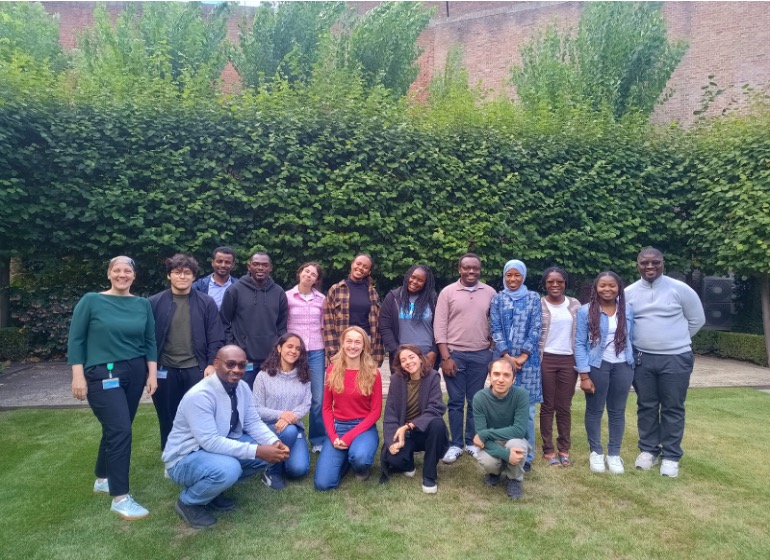

Du 31 août au 13 septembre 2025, nous avons eu l’opportunité de participer à notre premier voyage professionnel à l’Institut de Médecine Tropicale (IMT) d’Anvers, dans le cadre du programme FA5, un partenariat entre la Guinée et la Belgique visant à renforcer les capacités en santé maternelle et reproductive. Ce séjour s’inscrivait dans la mission de nettoyage et d’analyse des données issues du recensement des structures de santé du Grand Conakry, un travail essentiel pour une meilleure compréhension de l’offre et de l’utilisation des services de santé dans cette région.

Des activités riches et variées
Au cours de ces deux semaines, nous avons participé à de nombreuses activités stimulantes : réunions de coordination avec les équipes des projets Discontinu_Cities financé par FWO et UrbanMat, concertation sur les tâches à réaliser, visites guidées de l’IMT et rencontres avec les chercheurs internationaux. Sur le plan technique, nous avons contribué au nettoyage des bases de données du recensement des établissements et à l’analyse statistique des données sur les références obstétricales en Guinée à l’aide du logiciel R. En plus, Nous avons eu notre premier contact avec le logiciel ArcGIS Pro, un outil puissant pour l’analyse géospatiale. Cette expérience nous a permis d’apprendre à digitaliser les aires de santé du Grand Conakry et les itinéraires des femmes vers les hôpitaux de référence.
Cette visite a également été pour nous une opportunité de participer à la définition des critères d’échantillonnage des établissements de santé pour la deuxième phase du projet Discontinu_Cities, ainsi qu’à des séances de brainstorming sur la rédaction future d’articles scientifiques.
Notre participation à la réunion bihebdomadaire de l’unité de santé sexuel et reproductive et à la rencontre avec l’équipe de malariologie, nous ont permis de mieux comprendre la collaboration interdisciplinaire à l’IMT et l’importance d’un travail collectif pour améliorer la santé maternelle et infantile.
Une expérience formatrice et humaine
Au-delà de l’acquisition de compétences techniques, ce séjour a été une immersion dans un environnement scientifique international. La diversité des disciplines, la rigueur des chercheurs expérimentés et l’esprit de collaboration nous ont permis de réfléchir à la place que nous souhaitons occuper dans la recherche en santé publique.
Nous avons rencontré certains défis, notamment la barrière linguistique et l’adaptation à un nouvel environnement de travail. Ce défi a renforcé notre confiance, notre persévérance et notre capacité à apprendre en continu.
Des perspectives motivantes
Cette mission ouvre déjà de nouvelles perspectives :participation à la deuxième phase du projet sur la discontinuité des services de santé, rédaction d’articles scientifiques sur les références obstétricales et formation continue sur ArcGIS Pro pour mieux analyser et valoriser les données collectées.

